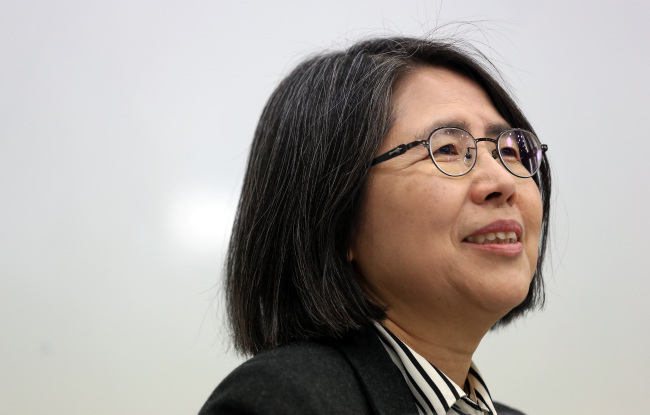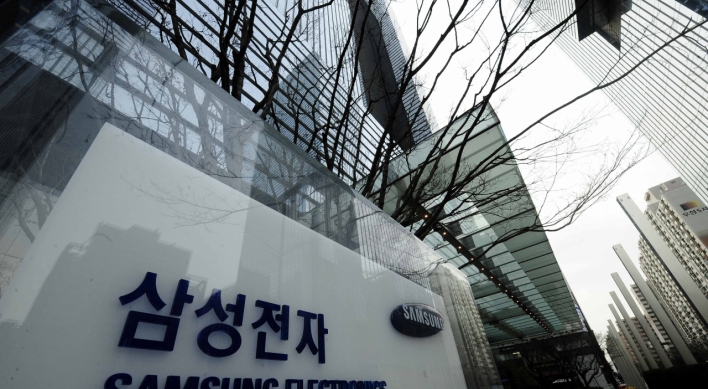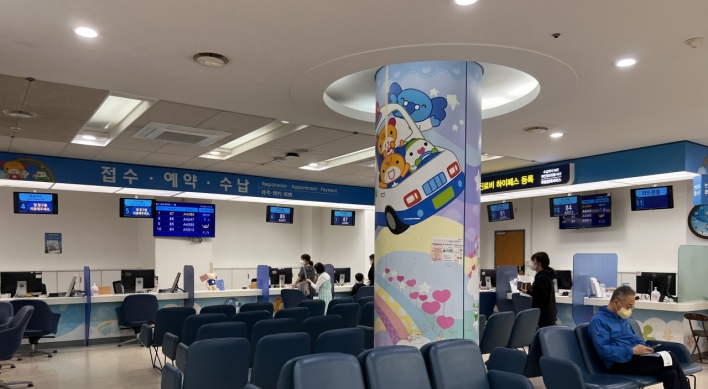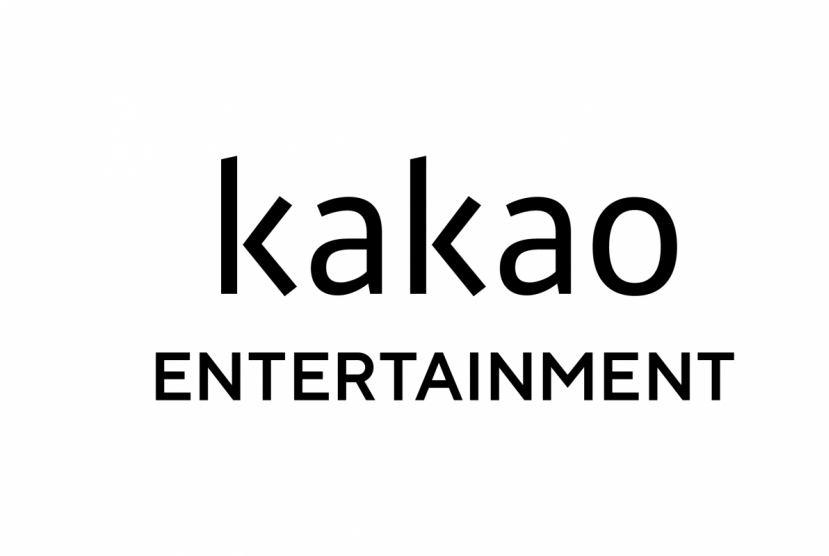With a forthcoming anticorruption law to be confirmed this week, calls to alleviate its restrictions spread within political and legal circles.
While lawmakers argued that agriculture, livestock and fisheries industries should be exempted from sanctions, lawyers accused the bill of excessive legislation for expanding its regulation coverage to non-civil servants.
“Those speaking for the interests of farming and fishing regions are highly concerned over the enforcement of the current draft,” said Rep. Kim Young-choon of The Minjoo Party of Korea on Sunday.
Kim is currently chairman of the parliamentary Agriculture, Food, Rural Affairs, Oceans and Fisheries Committee.
While lawmakers argued that agriculture, livestock and fisheries industries should be exempted from sanctions, lawyers accused the bill of excessive legislation for expanding its regulation coverage to non-civil servants.
“Those speaking for the interests of farming and fishing regions are highly concerned over the enforcement of the current draft,” said Rep. Kim Young-choon of The Minjoo Party of Korea on Sunday.
Kim is currently chairman of the parliamentary Agriculture, Food, Rural Affairs, Oceans and Fisheries Committee.

The subject of his anxiety is the ill on the prohibition of corrupt requests and bribery -- dubbed the Kim Young-ran law, taking its name from its initiator.
The core of the anti-graft bill is to impose criminal fines on civil servants, teachers and journalists who have received meals, gifts, or cash gifts respectively worth 30,000 won ($26), 50,000 won or 100,000 won or more.
The bill, whose legislation notice period ended last week, is be confirmed as final draft this week and take legal effect in September this year.
Dissenters within the political circles have either been calling for an alleviated monetary ceiling or the exclusion of the farming and fishing industries from the given sanctions.
Reps. Yi Wan-young and Kim Jong-tae of the ruling conservative Saenuri Party, both based in agricultural constituencies in North Gyeongsang Province, also made similar claims, gesturing to draft a revision of the disputed bill in the upcoming months.
Rep. Kwak Dae-hoon, Saenuri lawmaker and member of the parliamentary Trade, Industry and Energy Committee, even argued that the implementation of the current draft would cause some 2.6 trillion won of financial losses to small businesses.
Such concerns from the legislature were echoed by some Cabinet members, including Agriculture Minister Lee Dong-phil and Economic Deputy Prime Minister Yoo Il-ho.
“I agree that the price ceiling should be raised for the sake of farmers and fishers, as well as self-employed businesspeople,” said Lee in a parliamentary policy discussion on Friday.
Deputy P.M. and Finance Minister Yoo also said that the Kim Young-ran act, despite the public support for its bribery-curbing intent, could place constraints on the domestic economy.
While the financial and parliamentary officials focused on the economic impact that the law is to have on the local industries, legal circles pointed out on what they saw as legislative flaws.
In March last year, the Korean Bar Association had filed a petition to the Constitutional Court, claiming that the Kim Young-ran law infringes on the rights to equality by treating private schools and media organizations in accordance with government departments.
In response, the Constitutional Court Chief Justice Park Han-chul said that the court will make its judgment by September, before the disputed bill takes effect.
The bill in question, first motioned in 2011, intended at curbing the growing level of corruption cases involving influential public servants such as high-ranking prosecutors.
But its draft, imposing criminal sanctions on public servants who take gifts or services worth 1 million won ($852) or more, was shelved at the parliamentary state affairs committee due to its “ambiguous range of restrictions.”
It was in the wake of the Sewol ferry sinking in April 2014 and the consequent criticism upon public servants’ integrity that the dormant bill once again picked up momentum.
By Bae Hyun-jung (tellme@heraldcorp.com)
The core of the anti-graft bill is to impose criminal fines on civil servants, teachers and journalists who have received meals, gifts, or cash gifts respectively worth 30,000 won ($26), 50,000 won or 100,000 won or more.
The bill, whose legislation notice period ended last week, is be confirmed as final draft this week and take legal effect in September this year.
Dissenters within the political circles have either been calling for an alleviated monetary ceiling or the exclusion of the farming and fishing industries from the given sanctions.
Reps. Yi Wan-young and Kim Jong-tae of the ruling conservative Saenuri Party, both based in agricultural constituencies in North Gyeongsang Province, also made similar claims, gesturing to draft a revision of the disputed bill in the upcoming months.
Rep. Kwak Dae-hoon, Saenuri lawmaker and member of the parliamentary Trade, Industry and Energy Committee, even argued that the implementation of the current draft would cause some 2.6 trillion won of financial losses to small businesses.
Such concerns from the legislature were echoed by some Cabinet members, including Agriculture Minister Lee Dong-phil and Economic Deputy Prime Minister Yoo Il-ho.
“I agree that the price ceiling should be raised for the sake of farmers and fishers, as well as self-employed businesspeople,” said Lee in a parliamentary policy discussion on Friday.
Deputy P.M. and Finance Minister Yoo also said that the Kim Young-ran act, despite the public support for its bribery-curbing intent, could place constraints on the domestic economy.
While the financial and parliamentary officials focused on the economic impact that the law is to have on the local industries, legal circles pointed out on what they saw as legislative flaws.
In March last year, the Korean Bar Association had filed a petition to the Constitutional Court, claiming that the Kim Young-ran law infringes on the rights to equality by treating private schools and media organizations in accordance with government departments.
In response, the Constitutional Court Chief Justice Park Han-chul said that the court will make its judgment by September, before the disputed bill takes effect.
The bill in question, first motioned in 2011, intended at curbing the growing level of corruption cases involving influential public servants such as high-ranking prosecutors.
But its draft, imposing criminal sanctions on public servants who take gifts or services worth 1 million won ($852) or more, was shelved at the parliamentary state affairs committee due to its “ambiguous range of restrictions.”
It was in the wake of the Sewol ferry sinking in April 2014 and the consequent criticism upon public servants’ integrity that the dormant bill once again picked up momentum.
By Bae Hyun-jung (tellme@heraldcorp.com)
-
Articles by Korea Herald


![[KH Explains] No more 'Michael' at Kakao Games](http://res.heraldm.com/phpwas/restmb_idxmake.php?idx=644&simg=/content/image/2024/04/28/20240428050183_0.jpg&u=20240428180321)



![[Grace Kao] Hybe vs. Ador: Inspiration, imitation and plagiarism](http://res.heraldm.com/phpwas/restmb_idxmake.php?idx=644&simg=/content/image/2024/04/28/20240428050220_0.jpg&u=)
![[Herald Interview] Mom’s Touch seeks to replicate success in Japan](http://res.heraldm.com/phpwas/restmb_idxmake.php?idx=644&simg=/content/image/2024/04/29/20240429050568_0.jpg&u=)


![[News Focus] Lee tells Yoon that he has governed without political dialogue](http://res.heraldm.com/phpwas/restmb_idxmake.php?idx=644&simg=/content/image/2024/04/29/20240429050696_0.jpg&u=20240429210658)








